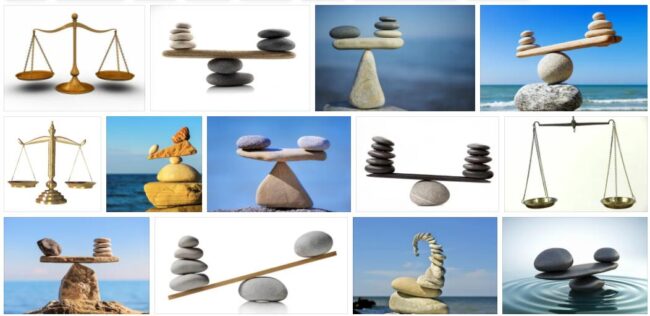In order to fully understand the meaning of the term balance, we must begin by discovering its etymological origin. In this case, we can state that it is a word that derives from Latin. Specifically, it comes from the noun “bilanx”, which is the name used to refer to a scale that had two plates. And it is that it was the result of the sum of these two components:
-The prefix “bi-”, which is equivalent to “two”.
-The noun “lanx”, which can be translated as “plate”.
The concept refers to the device used to calculate the weight of things.
For example: “My nutritionist recommended that I buy a scale so that I can evaluate the evolution of my weight”, “The greengrocer told me that the scale is out of calibration”, “The Russian boxer will go up on the scale tonight”.
There are multiple types of balances that allow weighing items with very different characteristics. Scales, in particular, measure the mass of bodies: the amount of matter they have. The kilogram is the unit of mass in the International System of Units.
There are many types of scales that exist, highlighting those for animals, industrial, pocket, those used for trucks, jewelry, digital, pharmacy, dock, baby weights… The latter, for For example, as their name suggests, they can be found both in pediatric consultations, in pharmacies and even in homes and their objective is to be able to know the weight of a young child. In this way, you can know if you are growing and gaining weight normally or not.
In the same way, it should not be forgotten that there are scales whose objective is to weigh very specific items. Thus, there are vehicles, parcels, animals, barrels, hoppers, laboratory, jewelry, food…
In addition to all the above, whatever the type, it is required that a balance be accurate, reliable, resistant, easy to use and that it can have really useful functions such as memory, for example.
Although there are differences between weight and mass, in everyday language both notions are used as equivalent. Therefore, although the scale reveals the table of something, it is often said that it reports its weight.
The precision of the balances varies according to their use. In a butcher shop, to cite one case, it is sufficient that the scale works with an accuracy of grams. Thus the butcher can sell two kilograms of ribs (chops) or two hundred grams of minced meat. Instead, in a laboratory, a scale with milligram precision will be needed to prepare drugs in their exact proportions.
In the field of economics, certain records are known as scales that allow comparing the status of income and money outflows. The trade balance, in this framework, reflects the comparison between a country’s exports and imports, while the balance of payments compares the foreign payments and receipts of a given economy.




